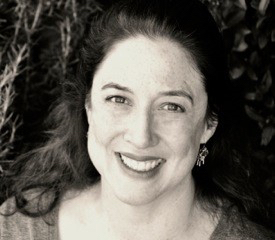 Kellen Hertz is the author of the book series for American Girl’s new contemporary character, Tenney Grant. The following is the complete transcript of her interview with Cracking the Cover.
Kellen Hertz is the author of the book series for American Girl’s new contemporary character, Tenney Grant. The following is the complete transcript of her interview with Cracking the Cover.
Why do you write?
Wow, that’s a huge awesome question! I write for a bunch of reasons. First, as a form of self-expression. It helps me process the emotions that I’m feeling in my life and get some perspective on them — so a bit like Tenney! Also, I write stories in particular to make sense of the world around me, and to make some meaning out of the experiences I have and that I see others having.
I also love the feeling I get when I escape into one of the stories that I’m writing … it’s like reading a good book or seeing a film, but there’s something exhilarating and terrifying about the fact that I’m not quite sure what’s going to happen next (even if I sort of do), and whether or not my ideas are going to work within a story. Writing engages my mind and my heart at the same time, and it forces me to figure out who am I and what I stand for.
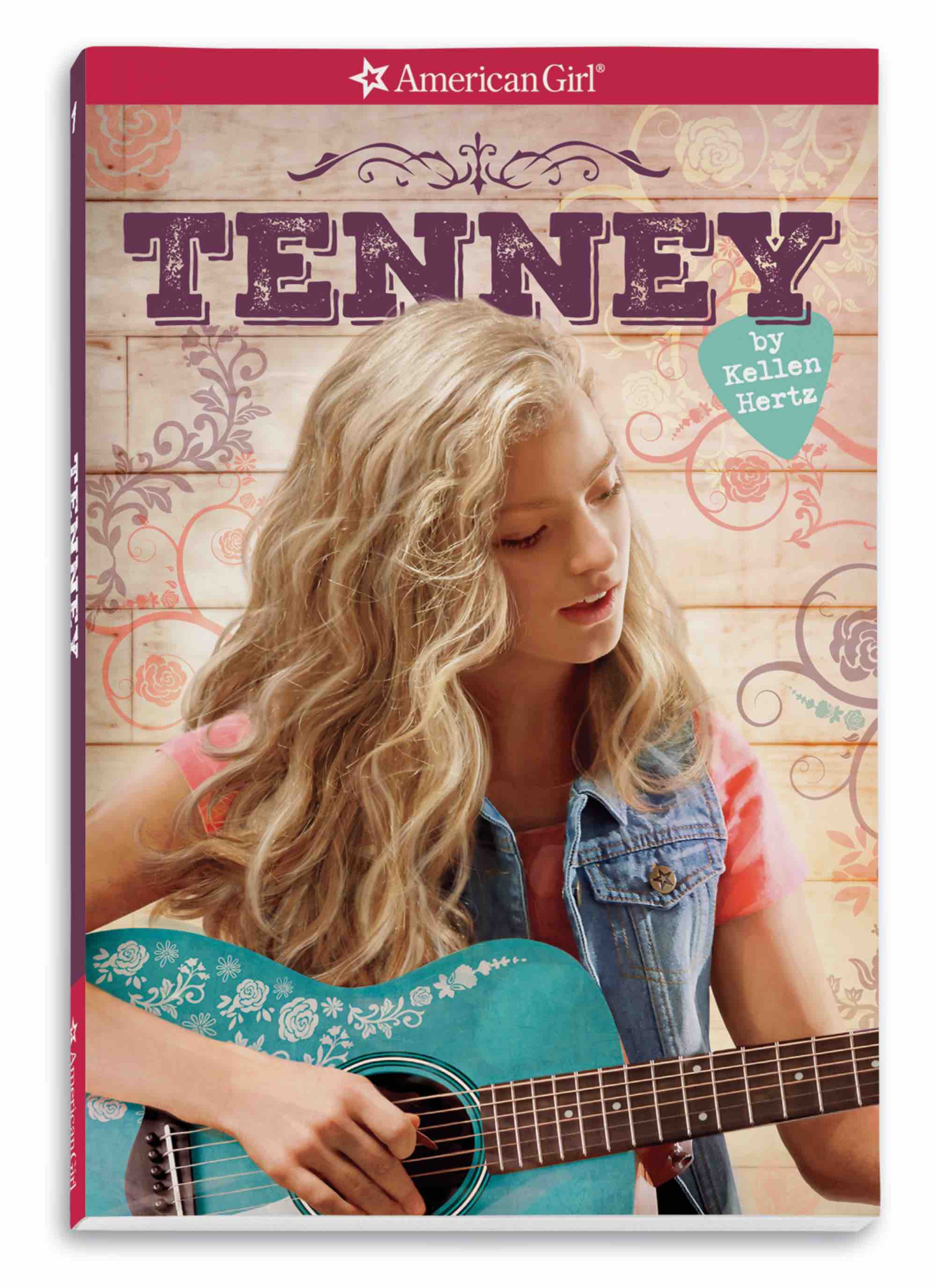 Why specifically for young readers?
Why specifically for young readers?
As a screenwriter, I wrote for adults as well, but adolescence is something I come back to repeatedly. For me, around 8-9-10 is when I really started questioning the things that happen around me, and started realizing that not everything is truly how it’s being presented to you by adults. Then, as I became a teenager, I started questioning my own identity, and who I was and who I wanted to be. And those are questions are ones I come back to a lot as an adult. I still find them fascinating. Also, I love middle grade and YA books. I’ve always read them for fun as well and related to them more closely than some of the adult literary fiction I’ve read.
How does your experience as a screenwriter and television producer influence your writing?
Mostly in my work ethic. I’ve been writing since I was 14 … I tried to write a novel at 13, which was abandoned, then switched to writing plays, and wrote a lot of plays as a teen. As I got older, I got mired in writer’s block and insecurity about not being “good enough.” Working in TV, you don’t have time to waste worrying, because the show has to be shot and edited and often has an air date. It made me less precious and neurotic about writing, which helps when I’m on a deadline.
As a screenwriter, I’m very attuned to the way people speak and how they express themselves (or don’t). I’m also very interested in point of view, how we see the world and how a story’s shaped by who is telling it. Also, screenwriting forces you to think about how a story is structured, and how to tell a story visually, which I think helps makes my books feel more active.
How did you become involved with American Girl? What was your first exposure to it?
When I was about 15, we got an American Girl catalog in the mail. I remember looking at it and thinking that Samantha Parkington reminded me of Sara Crewe from “A Little Princess,” which is one of my all-time favorite books. I secretly wanted to get that doll so much! But I was a teenager, so of course I was too cool for that. 🙂 I did read early Samantha and Kit books from the library. I LOVE history, so I appreciated them immensely. I was just a bit too much of a teen when I discovered them.
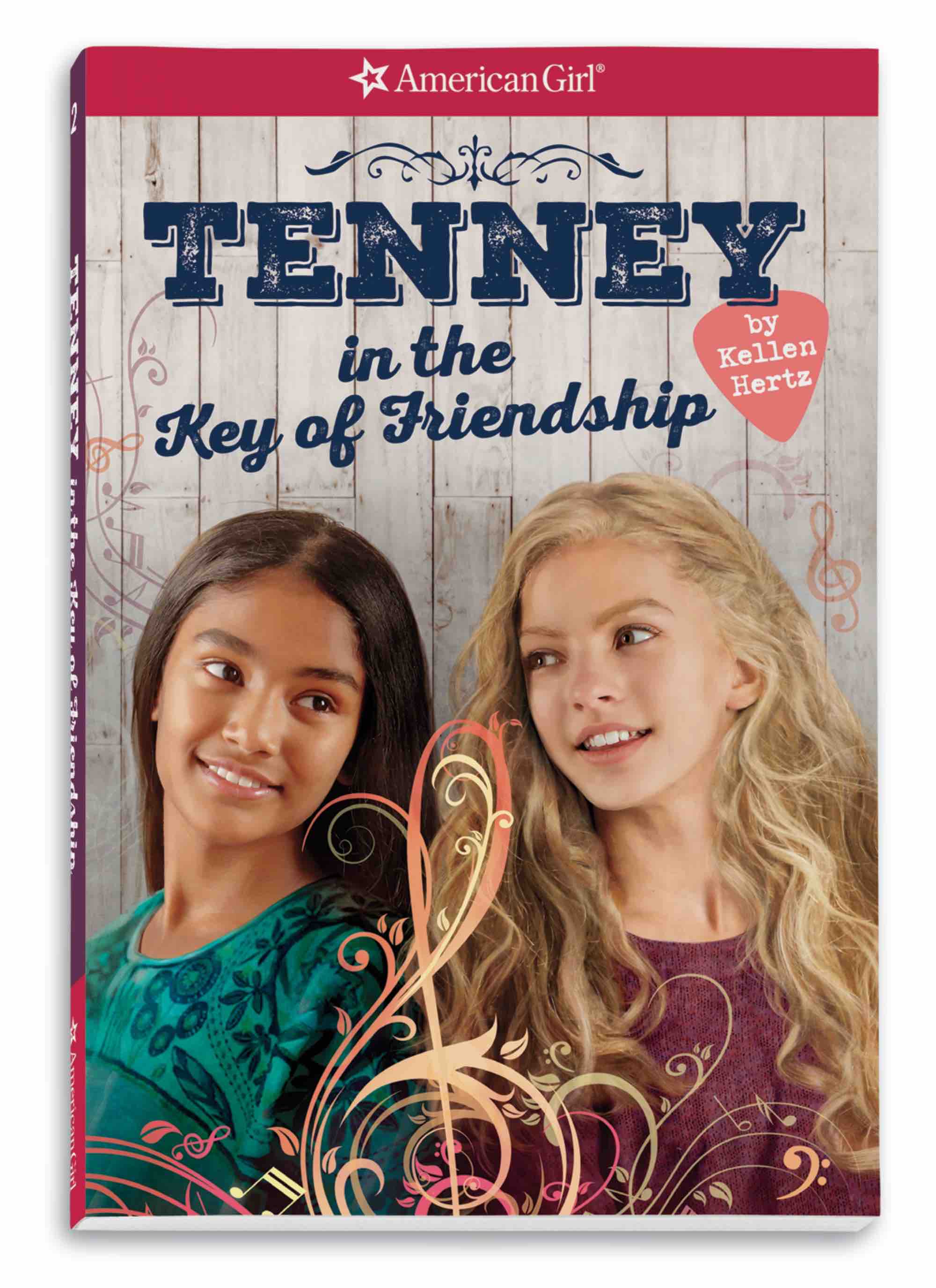 How did you come to write the Tenney books?
How did you come to write the Tenney books?
Well, I initially co-wrote the third book in the Lea series, “Lea and Camilla.” I got that job because they were looking for someone to help Lisa Yee as she was very busy with the other two books. They read a script of mine about Elizabeth I as a thirteen year old, and really liked the plotting and dialogue and characters. And then I had several conversations talking to editors Jennifer Hirsch and Elizabeth Ansfield, who I think could sense how much I love middle grade and YA literature. Then, when I turned in “Lea and Camilla” everyone was very happy with it, including Lisa, who gave notes and made tweaks. Shortly thereafter, American Girl offered me Tenney. I literally jumped up and down for ten minutes after they offered me the job.
What comes first, the book or the doll? Is it a collaboration or did you have specific things American Girl wanted you to touch on?
Well, the idea of the doll comes first. American Girl decides what they want the girl to love … in this case, that Tenney loved music and played an instrument, probably guitar, and that she was from Nashville. Other than that, they completely allowed me to go away and build the character and her family and world and gather together ideas for the plots of the first three books.
I came to Wisconsin and walked them through my ideas for Tenney as a character, what I wanted to avoid and what I thought her stories should center around. They loved it, which was fantastic. The process was extremely collaborative from the get-go, I think the design team making Tenney and Logan and their collection had much of the same instincts that I had.
I really wanted to touch on the idea of authenticity — of being true to yourself, to your own sound, to your own voice and to what you want to say in the world. Our culture’s become very fame saturated, especially the entertainment business. Yet music — playing it, listening to it, writing it — is still such an integral part of people’s lives. Songs have real, specific meaning to people’s lives, and music engages our emotions like nothing else.
So what happens when you have a kid who is truly, legitimately a talented songwriter and artist? As a parent, what do you do if your kid is really good at something that you think could end up hurting them? I don’t think it’s just about aspiring to be a performer, it’s also kids who want to be artists, athletes, and even doctors and to be President, etc. As a mom myself, I really thought about the tension between wanting to support my child in absolutely everything he wants to do, and wanting to protect him from getting hurt, emotionally and otherwise. I wanted Tenney’s stories to talk about that.
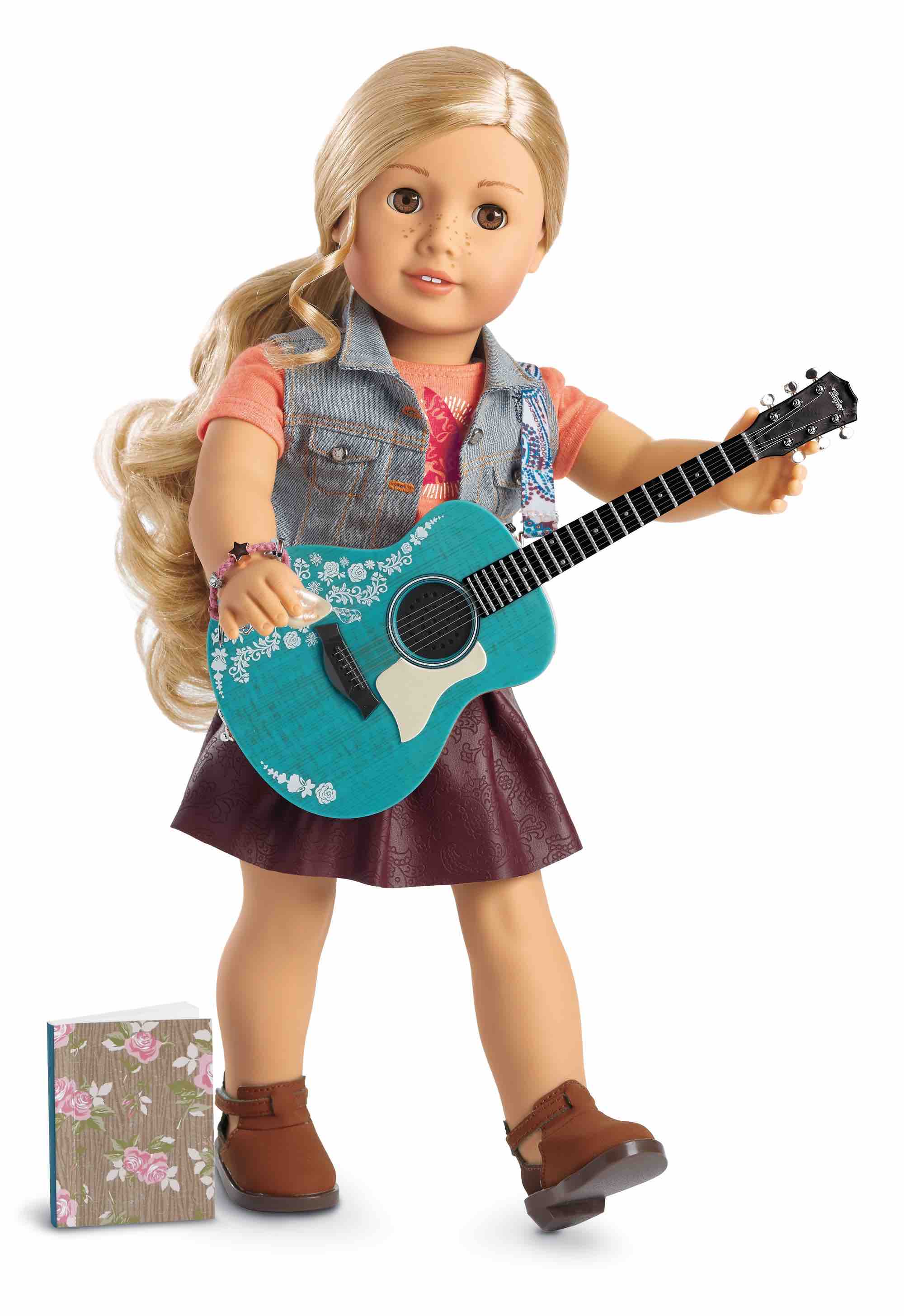
Along those same lines, did you have the lyrics to Reach the Sky before writing? If so, how did they inspire you?
Part of my original pitch was that in every story, Tenney should be inspired to write a song because of something going on in the plot … because I wanted readers to see that the process of creating and writing a song is really what makes her special. Yes, she’s a performer too, but she wouldn’t necessarily be a performer if she didn’t have a drive to express herself through songwriting.
For the first book, I knew I wanted the song to be something that comes out of her conflict with her mother, who once wanted to be a singer and who had a brief, botched performing career. I basically wrote the book, and temp lyrics for what the song could be. Then American Girl and Erika Nichols approached some young female songwriters in Nashville, and gave them sections of the book and told them Tenney’s story and asked them to use the book’s story and the context as inspiration. “Reach the Sky” came out of that. Once it was chosen, I revised some of Tenney’s creative process in the text so that the lyrics and song felt like a natural outgrowth of Tenney’s story.
As far as American Girl goes, the historical book, aka BeForever, are kind of the meat and potatoes. How does writing a contemporary novel compare? Did you feel any pressure to live up to your books’ predecessors?
Yes, I felt a TON of pressure. Especially after reading Valerie Tripp’s books, who I just think is a wonderful writer. But the contemporary books are a bit of a different beast than the historicals. I actually probably would have felt more comfortable writing a historical, because many of my screenplays are period and required quite a bit of research, and I love finding a character that way, through the research. What I realized when I worked on “Lea and Camilla” though is that a contemporary book can directly address issues girls are having in today’s world. I have six and eight year old nieces, and I check in with them and their mom quite a bit about what she would allow them to do, particularly in terms of dealing with cell phones, email, texting, etc.
Through writing Tenney I’ve really found that contemporary stories can be as emotionally rich and engaging as the historicals that I’ve always loved.
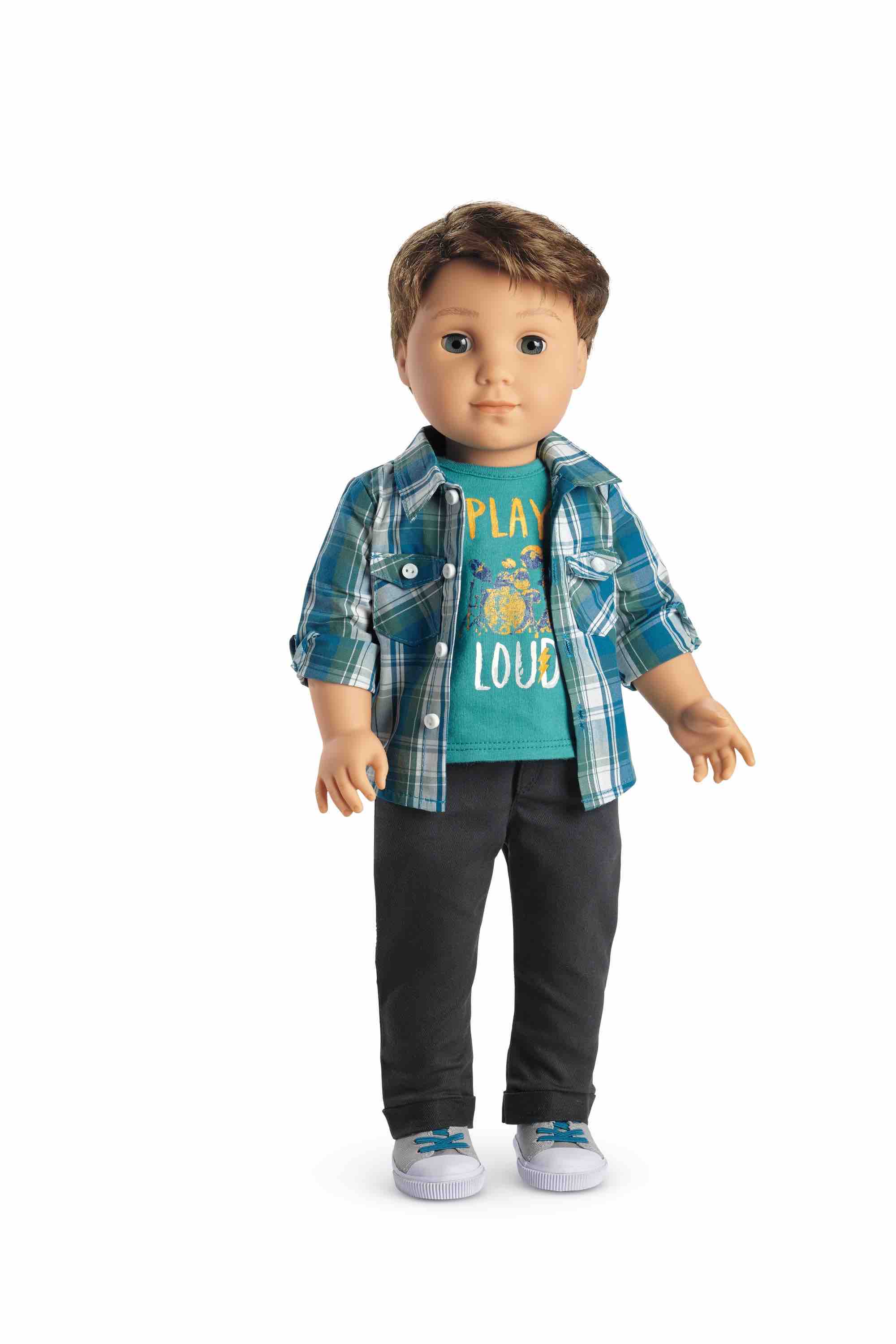
American Girl books, dolls, etc. are extremely popular. What’s it like being the author behind one of the dolls?
Well, I didn’t really do press for “Lea and Camilla,” so I would say I’ve been pretty sheltered through the whole process with Tenney … I’ve just sort of been holed up writing and revising with my editors. What I most love about writing for American Girl is getting to writing stories about girls (and boys!) who are complicated, independent, caring people. I also love knowing that after all my hard work, kids out there are actually going to read these stories and hopefully grow from that experience.
Why do you think Tenney’s story will resonate with young readers?
At the end of the day, it’s a story about a kid who has a passion for something that she’s good at, but also that’s going to difficult to achieve, and who has to pursue that dream while she’s also dealing with all the struggles of simply growing up. I think a lot of kids have interests and dreams like this, and can relate to that journey. Also, I think everyone loves music, even if (like me) they don’t play an instrument. And Tenney’s story is really about someone who loves music on every level. Most of all, it’s about someone finding the heart and courage to find her voice and sing her own song… which is something that all kids go through on a metaphoric level.
Is there a book from your own childhood that still resonates with you today?
SO MANY. But I’ll go with “The Secret Garden” by Frances Hodgson Burnett. I also really love the Laura Ingalls books, and “The Little Silver House” by Jennie Lindquist. And all the Oz books. And “Charlie and the Chocolate Factory.” And “Little Women.”
